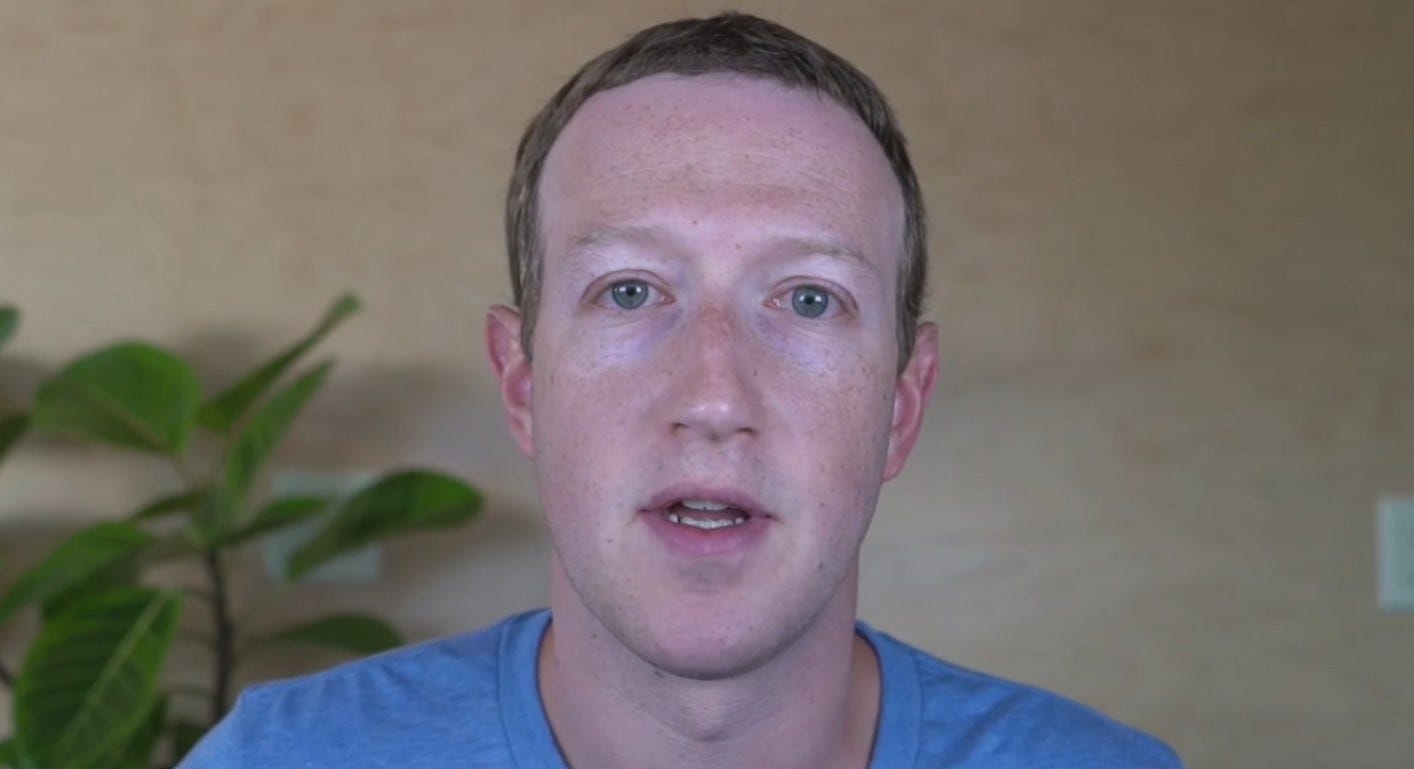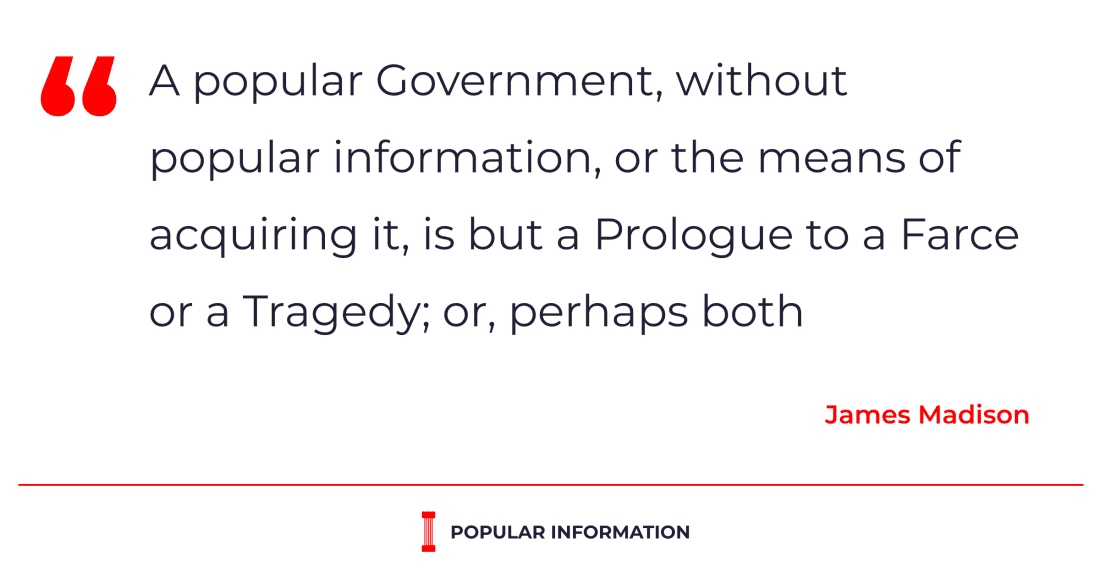UPDATE: Facebook's tipping point

On Tuesday, Popular Information reported that five companies, including Patagonia and REI, had decided to stop advertising on Facebook for the month of July. They were responding to the Stop Hate For Profit campaign, which is pushing companies to protest Facebook's role in spreading hate and misinformation.
Three days later, more than 125 companies have decided to stop advertising on Facebook during July. Among them are well-known brands like Ben & Jerry's, TalkSpace, and Magnolia Pictures. But things became really serious when Verizon signed on Thursday evening.
Then, yesterday, consumer goods giant Unilever — one of the world's largest advertisers — announced they would stop advertising on Facebook and Twitter for the rest of the year. Luis Di Como, Unilever’s executive vice president of global media, broke the news in an interview with the Wall Street Journal:
Based on the current polarization and the election that we are having in the U.S., there needs to be much more enforcement in the area of hate speech. Continuing to advertise on these platforms at this time would not add value to people and society...The complexities of the current cultural landscape have placed a renewed responsibility on brands to learn, respond and act to drive a trusted and safe digital ecosystem.
Then Coca-Cola and Hershey's announced they would not advertise on Facebook in July. "We do not believe that Facebook is effectively managing violent and divisive speech on their platform. Despite repeated assertions by Facebook to take action, we have not seen meaningful change," a Coca-Cola spokesperson said.
This newsletter is playing a significant role in informing the world about the reality of how Facebook operates. Here's a selection of Popular Information's reporting on Facebook over the last few weeks:
On Thursday, we uncovered how The Daily Wire, a website run by right-wing commentator Ben Shapiro, has become the most successful publication on Facebook. Shapiro is gaming the Facebook algorithm through a secret partnership with a network of Facebook pages that build audiences with racist and violent content.
On Wednesday, we reported that Facebook, at the behest of climate science deniers, has created a loophole in its fact-checking program to allow climate disinformation.
Last Thursday, we exposed how Facebook is not enforcing its own rules against the Boogaloo movement, a group that includes "white nationalists and neo-Nazis who want to see society descend into chaos so that they can come to power and build a new fascist state." Facebook's inaction has continued even though two men who met in a Boogaloo group on Facebook were charged with working together to murder a federal officer.
Earlier this month, Popular Information broke the news that Facebook was allowing Congressional candidates to run ads with violent threats.
In May, we revealed how Facebook was allowing dangerous misinformation about COVID-19 to proliferate. Popular Information identified dozens of Facebook posts that violated a ban on falsely claiming wearing a cloth mask will make you sick.
Now, some major advertisers are waking up to the impact that Facebook has on the world and taking action.
You can support Popular Information's independent accountability journalism — and help us do more of it — by becoming a paid subscriber. It's $6 per month or $50 for a year.
Popular Information is primarily distributed via email and does not accept advertising. That isn't an accident. It means we are not dependent on Facebook or any other corporation. It gives us complete freedom to tell you the truth. But it also means this newsletter only exists because of the support of readers like you.
Facebook CEO Mark Zuckerberg is already feeling the heat. On Friday, Zuckerberg outlined a series of steps he said would "crack down on voter suppression and fight hate speech." But the details were not impressive, and it was quickly dismissed by the Stop Hate for Profit coalition as woefully insufficient.
Faced with this tidal wave, Mark Zuckerberg responded today with a small number of small changes. He stated that Facebook would apply their hate policy to ads as if it was some new revelation, while not addressing hate more broadly in groups and posts. Voter misinformation may be a bit harder to spread the day of the election (but still will run rampant the rest of the time). And posts that call for violence will still be allowed if they come from someone “newsworthy” but they will now be labeled. None of this will be vetted or verified - or make a dent in the problem on the largest social media platform on the planet.
We have been down this road before with Facebook. They have made apologies in the past. They have taken meager steps after each catastrophe where their platform played a part. But this has to end now.
Stay tuned.
Thanks for reading!



May the exodus continue.
Thanks for being so good at your reporting. You are far more effective at helping us than anyone in Congress.